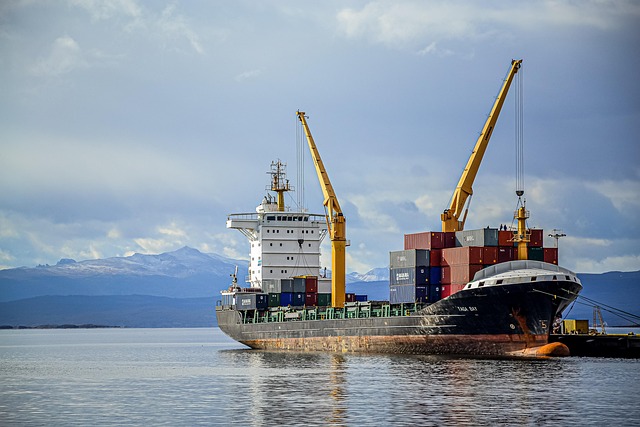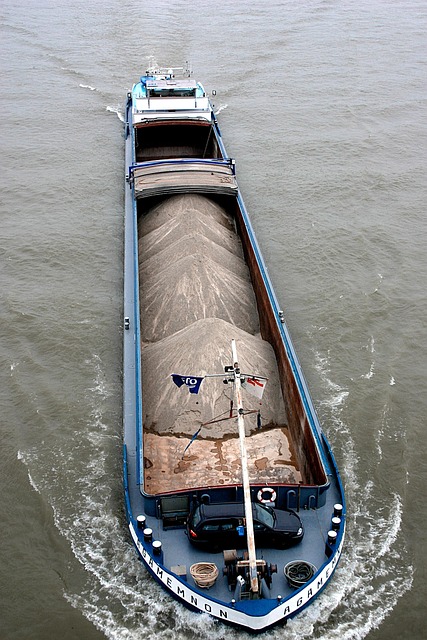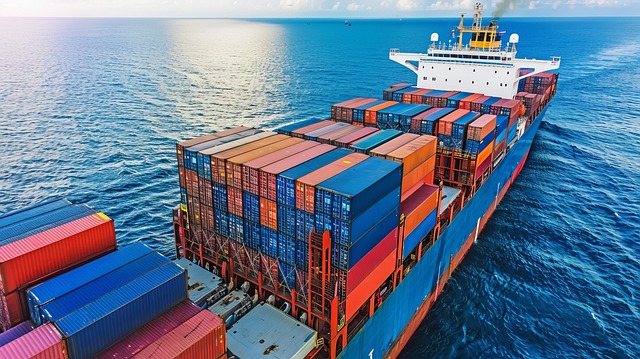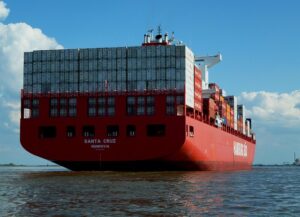Modular shipping containers have revolutionized global logistics by offering flexible, multi-modal transport solutions tailored to diverse cargo needs. Standard ISO containers handle bulk goods, while specialized variants cater to specific requirements like perishables and oversized items. This versatility optimizes supply chain processes, reduces port handling times and costs, and enables seamless transitions between sea, land, and air transport. Shipping containers provide cost-effective temporary storage, customizable configurations, and robust construction, making them a versatile and accessible solution for businesses of all sizes. Future developments include advanced modifications and smart technologies, enhancing efficiency, sustainability, and real-time tracking in container transport.
Modular shipping containers are revolutionizing transport logistics by offering unprecedented flexibility in configuration. This article delves into the rising trend of these innovative solutions, exploring their basic concepts and diverse applications across industries. We uncover how modular containers unlock new possibilities, from optimizing space to catering to unique transport needs. Furthermore, we examine future prospects, highlighting emerging innovations set to transform global shipping landscapes. Discover how these game-changing containers are reshaping logistics in today’s dynamic market.
- The Rise of Modular Shipping Containers: A Revolution in Transport
- Understanding the Basics: What are Modular Shipping Containers?
- Unlocking Flexibility: Configurations for Diverse Transport Needs
- Benefits and Applications: Transforming Logistics Across Industries
- Future Prospects: Innovations Shaping Tomorrow's Transport Landscape
The Rise of Modular Shipping Containers: A Revolution in Transport

The rise of modular shipping containers has revolutionized transport and logistics, offering unprecedented flexibility in configuring cargo space. This shift towards modularity is driven by the diverse and dynamic nature of global trade, where goods need to be transported efficiently across various modes—from sea to land to air—and often within tight deadlines.
Modular containers, such as ISO containers, come in a variety of sizes and types, catering to different cargo needs. The standard 20-foot and 40-foot shipping containers are the most common, providing efficient storage and transport solutions for bulk goods. But the innovation doesn’t stop there; specialized containers like refrigerated, high cube, flat rack, open top, and office containers cater to specific requirements, ensuring perishable items remain fresh, oversized cargo can be secured, and mobile offices are available for on-site operations. This versatility in container types allows businesses to optimize their supply chain processes, reduce handling times at ports (and associated costs), and seamlessly transition between different transportation methods, making container shipping a game-changer in the freight industry.
Understanding the Basics: What are Modular Shipping Containers?

Modular shipping containers are revolutionizing transport and logistics by offering a versatile solution for various freight needs. These containers, also known as intermodal or cargo containers, are essentially standardized, reusable structures designed to facilitate efficient movement of goods across different modes of transport—from ships and trucks to rails and even aircraft. Each container is built to stringent international standards, typically defined by the ISO (International Organization for Standardization), ensuring uniformity in size and features worldwide. This standardization allows for seamless interchanging between modes of transport, a process known as intermodal transportation.
A shipping crate or sea container comes in various dimensions and capacities, catering to different types of cargo and specific transport requirements. Common sizes include the standard 20-foot and 40-foot lengths, with heights ranging from 8 feet to 9.5 feet. These containers can be leased or rented, providing a cost-effective solution for businesses that require temporary storage or flexible transport configurations. Their robust construction ensures they can withstand harsh weather conditions and rough handling during transit, making them reliable for both domestic and international container shipping. Whether you need an office container, refrigerated container, flat rack, open top, high cube, or other specialized types, modular shipping containers offer a customizable solution to meet unique logistical challenges.
Unlocking Flexibility: Configurations for Diverse Transport Needs

Modular shipping containers offer unprecedented flexibility in transport configurations, catering to a wide range of diverse needs. With their innovative design and versatility, these containers can be seamlessly adapted for various modes of transportation, from sea and road to rail and air. By unlocking different arrangements and combinations, businesses can optimize their logistics and enhance operational efficiency.
Whether it’s transforming a standard shipping container into an office space, a refrigerated unit for perishable goods, or a specialized storage solution, the modular approach ensures adaptability. These containers come in various dimensions and capacities, accommodating freight containers, Intermodal containers, and even unique high cube containers. With options like open top and flat rack containers, no transport challenge is too peculiar. This versatility extends to leasing and rental services, making container transport more accessible and cost-effective for businesses of all sizes, from container depots to international shippers.
Benefits and Applications: Transforming Logistics Across Industries

Modular shipping containers offer a transformative advantage in logistics across diverse industries. Their versatility stems from being able to adapt to various configurations, sizes, and purposes. This flexibility benefits both shippers and carriers by optimizing space utilization and streamlining transport processes. For instance, companies can choose from an array of container types like refrigerated, flat rack, open top, or high cube containers, each designed for specific cargo needs—from temperature-controlled storage to oversized or bulky items.
The benefits extend further with the ability to lease or rent these containers, providing a cost-effective solution for temporary storage and transport. Industries such as manufacturing, agriculture, pharmaceuticals, and retail are leveraging this technology to enhance their supply chain management. Modular shipping containers enable efficient container shipping across different modes—sea containers on maritime routes, freight containers for rail and road transport—promoting intermodal connectivity and global trade. Container depots serve as pivotal hubs, facilitating the turnover of these versatile storage and transport units, ultimately revolutionizing the way goods move worldwide.
Future Prospects: Innovations Shaping Tomorrow's Transport Landscape

The future of transport and logistics is being reshaped by innovative technologies, with modular shipping containers playing a pivotal role in this evolution. As the global demand for efficient, flexible, and sustainable transport solutions grows, the existing container shipping models are undergoing significant transformations. One key trend is the rise of customizable, multi-purpose containers, such as the modular shipping containers, that can be adapted to various cargo types and transport modes. These innovative designs allow for seamless container leasing and container rental services, enabling businesses to optimize their supply chain operations without long-term commitments.
Looking ahead, we can expect even more advanced freight container modifications, such as refrigerated containers, flat rack containers, open top containers, and high cube containers, catering to specialized cargo needs. Additionally, the integration of smart technologies into intermodal containers will enable real-time tracking, improved security, and enhanced supply chain visibility. These prospects not only revolutionize container transport but also contribute to a more environmentally conscious shipping crate industry by optimizing storage container utilization and reducing carbon footprints. With ever-changing market demands and technological advancements, the ISO container is set to become an even more versatile asset in shaping tomorrow’s vibrant container shipping landscape.
Modular shipping containers are revolutionizing transport configurations, offering unparalleled flexibility for diverse logistics needs. By unlocking innovative possibilities, these containers are transforming industries and shaping a future where efficient, adaptable transportation is the norm. As technology advances, we can expect even more groundbreaking developments in this space, further streamlining global trade and enhancing our interconnected world.
